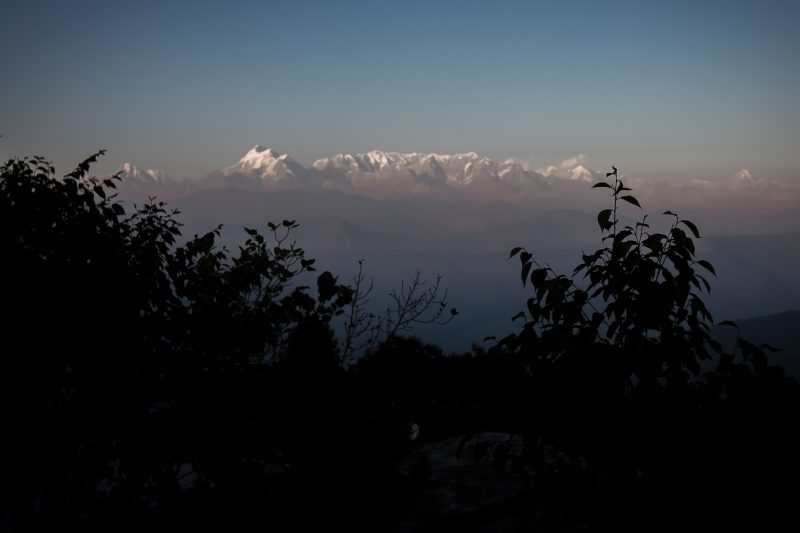Indian rescuers narrow search for missing climbers
Hundreds of climbers from across the world visit India to scale mountains across the Himalayan chain (view of Indian Himalayas from Kausani hill station) (Agnes BUN)
New Delhi (AFP) – Indian authorities Monday narrowed down the search for eight climbers missing on India’s second-highest mountain for several days after an avalanche, saying they have a “rough idea” of their location thanks to information from another rescued group.
The four Britons, two Americans, one Indian and one Australian failed to return to their base camp on Friday on the 7,826-metre (25,643-foot) Nanda Devi in the Indian Himalayas.
Thick cloud delayed the third day of the search operation by several hours Monday before air force helicopters took off to scour an area of roughly 50 square kilometres (20 square miles).
Authorities were able to reduce the search area following information provided by four British climbers rescued on Sunday from the Nanda Devi base camp.
The four were caught in bad weather and had been in contact with the larger group until May 26 when heavy snowfall and avalanches struck the range.
“Based on the information from the four rescued climbers, we have a rough idea about the area where they were trekking,” R.C. Rajguru, police chief of Pithoragarh district where the mountain is located, told AFP.
The officer said the choppers will look for any clues that can establish their exact location before a rescue is carried out.
A separate rescue team of mountaineers were climbing to the base camp but have yet to spot any signs of the missing climbers.
The missing climbers, led by Briton Martin Moran — who has two previous successful ascents of the mountain — had initially set out on May 13 for the eastern peak of Nanda Devi.
But a post on May 22 on the Facebook page of the mountaineering company he runs, Moran Mountain, said they were set to attempt “an unclimbed peak” at 6,477 metres.
They were expected to report back to base camp on May 26 but a porter stationed there reported to authorities that the group remained missing on May 31, prompting the search operation.
– ‘No sign’ –
A statement by the Moran family on Sunday said they have been informed by the Indian Mountaineering Federation that the air search has “revealed the scale of the avalanche but no sign of the climbers, their equipment nor their tents.”
“We are pressing for the search area to be widened and continued until such time as firm evidence is found to ascertain the well being or otherwise of all those in the climbing group,” the statement posted on the Moran Mountain Facebook page said.
The Sydney Morning Herald named the Australian member as British-born Ruth McCance.
It quoted her husband Trent Goldsack as saying that her last communication to him had been a text message around a week ago saying: “OK at base camp.”
Another of the British climbers was reported to be Richard Payne, a lecturer at the University of York.
“We remain extremely concerned for his safety and our thoughts are with his family, friends and colleagues at this difficult time,” a spokesman for the British university said.
– Tough climb –
Hundreds of climbers from across the world visit India to scale mountains across the Himalayan chain, but the peaks of Nanda Devi are the toughest to scale.
The first successful ascent of the Nada Devi summit was in 1936.
India has 10 peaks above 7,000 metres, including Kangchenjunga — the world’s third highest — sandwiched between India and Nepal.
Four Indians were among 11 climbers that died climbing Mount Everest in the latest season that ended last week amid allegations of overcrowding on the world’s highest peak.
Mountaineering experts criticised the government of Nepal for giving permits to anyone ready to pay $11,000, letting rookie climbers risk their lives and those of others on the slopes.
Disclaimer: Validity of the above story is for 7 Days from original date of publishing. Source: AFP.


